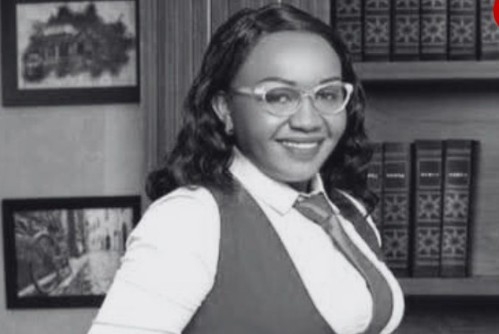For every woman, there comes a time when your menstrual cycle comes to an end.
When that time comes, it's called menopause.
It is diagnosed when a woman goes for 12 months without a menstrual period and can happen when they click 40s or 50s.
Even though it is a biological process, some scientists have come up with a procedure that could see women delay the process or stop it completely.
The procedure developed by scientists from Yale School of Medicine will see tissue from the ovaries extracted, frozen and transplanted years later into the body.
The research whose findings were published in the American Journal of Obstetrics and Gynecology shows that extracting the tissue from ovaries in adults earlier than transplanting them later can delay menopause.
This, in turn, will help extend the timeframe in which a woman who wishes to have children can be able to do so.
Known as cryopreservation, the procedure has been successfully used to maintain fertility in women undergoing treatment for cancer and other chronic illnesses.
The study was led by Kutluk Oktay, a professor at Yale School of Medicine.
Oktay developed and performed the world's first ovarian transplant procedure with cryopreserved tissue for a patient with medical indications in 1999, according to an online site Yale Daily News.
Oktay told the media the procedure which takes an hour involves cutting through the bikini line and the belly button.
The doctors then remove the outer layer of one ovary.
“For the first time in medical history, we can potentially delay or eliminate menopause,” Oktay told the media.
“The younger the person at the age of ovarian tissue freezing, the larger number of eggs she has, and as a result the longer the delay in menopause.”
Once extracted, the tissue is put through a freezing process that takes three to five hours before being stored in liquid nitrogen at a long-term tissue storage facility.
The tissue can last for decades if needed, the medic explained.
He noted that the portions of the outer ovary itself could contain tens of thousands of eggs which leaves a large number of potential un-fertilised eggs for future re-transplanting.
But this is not the first time for scientists to come up with this procedure.
According to a BBC report dated 2020, IVF scientists from ProFam, a company based in Birmingham had created the procedure.













![[PHOTOS] Three dead, 15 injured in Mombasa Rd crash](/_next/image?url=https%3A%2F%2Fcdn.radioafrica.digital%2Fimage%2F2025%2F11%2Fa5ff4cf9-c4a2-4fd2-b64c-6cabbbf63010.jpeg&w=3840&q=100)

